Jeff Kosmoski of KOZM Guitars, located outside of Portland, OR in the Pacific Northwest of the USA, has made it his mission to single-handedly shake-up the guitar-making industry and bring it into the modern age. He specialises in guitars which are ergonomic, organic, curvaceous, and three-dimensional with bodies that resonate, howl, scream and sing.
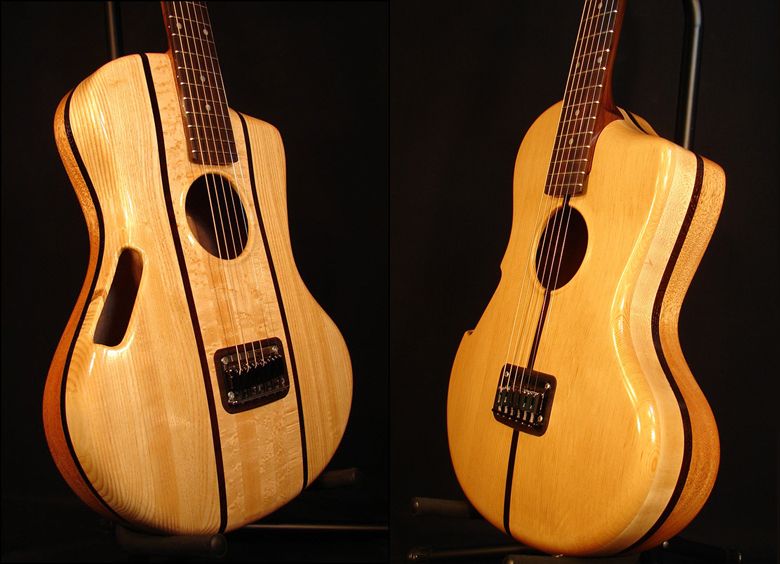 |
| KOZM VDC-1 and VDC-2 acoustic guitars |
Jeff tells us that:
These guitars are similar to my Heresy 1 series, in terms of scale length and general body size. However, the VDC series (VooDoo Child) has these major differences:It's heartening in these days of the "same old, same old" cookie cutter guitar designs to see someone doing something completely different and original in guitar design, and particularly within the field of acoustic guitar. How many of us have despaired of our acoustic guitar bridges and wished that we could set up the intonation as easily as on an electric?
In addition, the VDC 2 has a set of K&K Pure Mini transducers.
- An inclination to use voodoo-rich swamp ash in the front half of the guitar body. The VDC 1 has a figured-maple center area, with swamp ash in the outer areas. I used Doug Fir in the VDC 2 because I wanted to see how it affected the sound. (The VDC 1 has a well balanced sound with a surprising amount of low end, whereas the VDC 2 is a bit brighter. FYI, the actual cubic-inch volume of the VDC body is only about 57% of a conventional dreadnaught.)
- A modified hard tail bridge. This is basically a conventional, off-the-shelf hard tail bridge, with several key modifications to enhance the flow of acoustic energy into the East Indian rosewood base - and the body of the guitar. (See photos 1-3 below).
- The lower waist has been moved towards the bridge a tad. Although this gives the guitar a subtle non-symmetric appearance, the purpose was to force the guitar towards the player's left (at least when sitting down), which in turn tends to lower the right elbow and shoulder - resulting in a more comfortable and natural playing position.
G L Wilson
© 2014, Guitarz - The Original Guitar Blog - the blog that goes all the way to 11!
Please read our photo and content policy.

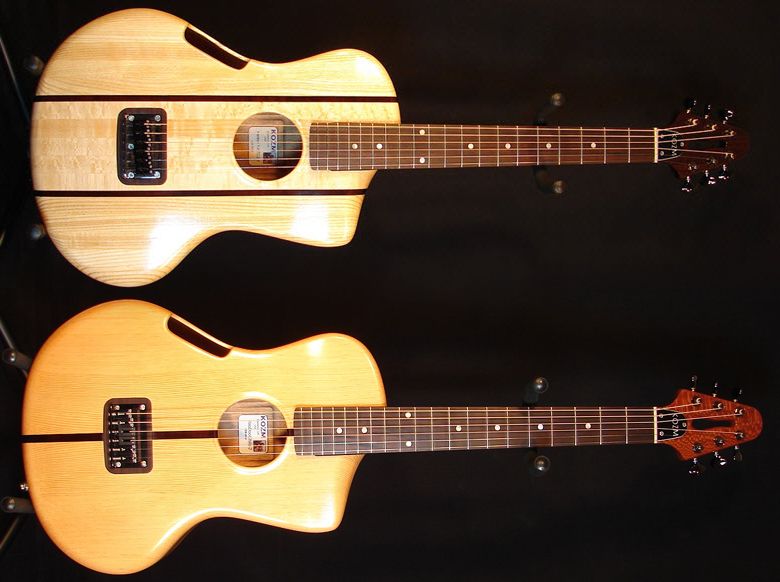
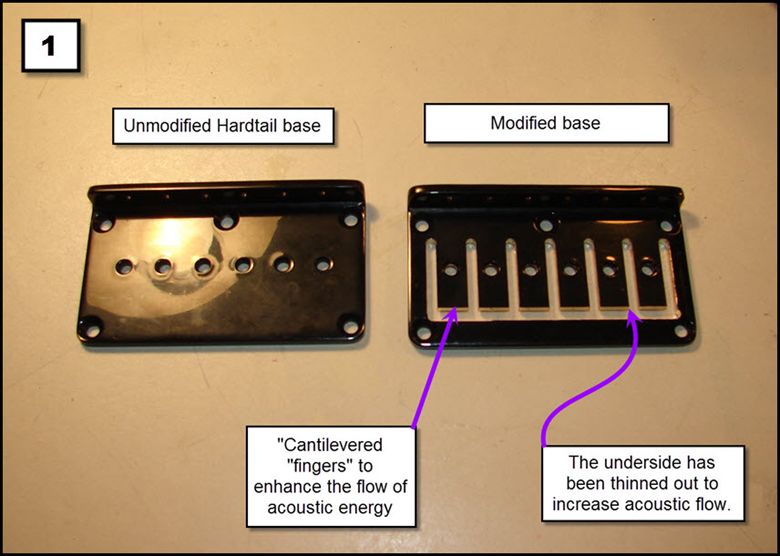
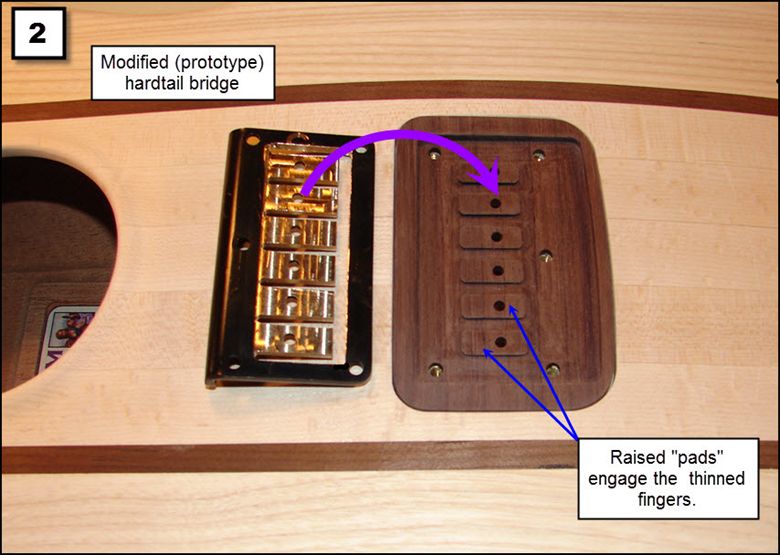
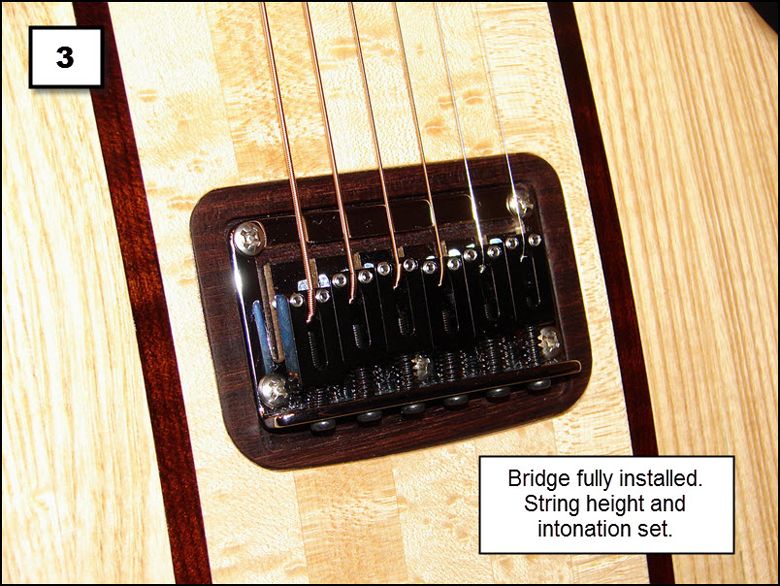
To Bring us straight back to boring cookie cutter designs.... Gibson did try this on their Dove acoustic in the late 60's, and it was doubtless brought up in the design for this guitar. The dove, like the hummingbird, was meant to fit into that high-end slot of the range, so much so that they crafted a smaler tune o matic bridge to fit to the guitar which caused problems almost immediately. The first being the bridge was so tall it meant that if the neck benst slightly the action could not go as low as with a standard bone piece, and so the action was miles out after a while. i believe the bridge also fell out when the guitar had no strings on, so maintenance almost always included a setup, and not everyone knew how to set the damn thing for an acoustic. The Huge lump of metal meant that the resonance of the top was all off, making the acoustic sound rather plain with none of the richness that the spruce, maple body could provide. The Dove wasn't cheap, and thanks to it's DELUXE feature, the dove never really got a good start and has flitted in and out of production for decades.
ReplyDeleteThe 70's were worst, with the tune o matic being replaced with that small piece of 'adjustable' steel, which intonated about as well as a guitar with a warped neck and sadly spread out to other makes and designs. Hence, why we all remeber the hummingbird and not the superior dove.
That said, this may come from a similar tradition of thought, but has been done ever so right. Rather than try and bolt the modern onto the best acoustic designs of the 30's the acoustic is simply rebuilt rather than sloppily reconfigured. And frankly given how much a dreadnought costs these days from the big manufacturers, ergonomic hardly seems to be more costly. But it does beg the question, what to do with our regular old acoustics? I'd like to see what this gentleman could fo for the more old school acoustic bridge, because we need some kind of well crafted minimalist design there, a method of retrofitting.
At last a "modern" accoustic! Brilliant!
ReplyDelete